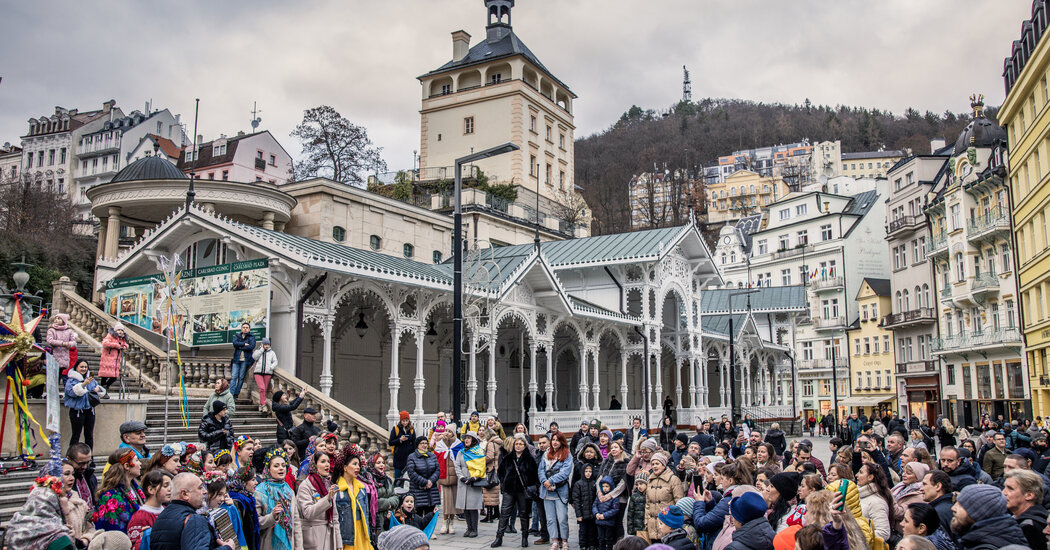James Bond, poisoned by a villain in the film “Casino Royale,” almost died in the forecourt of the Grandhotel Pupp, a majestic reinvention of what, under Communism, was called the Grand Hotel Moskva, a shabby lodge popular with members of the Czech and Soviet nomenklatura.
Rival hotels in the area have complained that widespread hostility to Russia and its people engendered by the carnage in Ukraine is crippling their business, built up over centuries around serving visitors from Russia. But the Pupp is doing well with a different approach.
“Our focus now is fully on the West, not the East,” said the hotel’s general manager, Jindrich Krausz. “Russia for us is the past, and it was not pleasant.”
A favorite playground for wealthy Russians since Peter the Great visited in the early 18th century, the Czech spa town of Karlovy Vary is studded with grandiose hotels and luxury boutiques with Russian-speaking staff, along with plaques honoring famous Russian visitors like the 19th-century novelist Ivan Turgenev. It has a Russian Orthodox cathedral, whose priests report to Patriarch Kirill in Moscow, and a bust of the famous czar atop a hill called Peter’s Height.
The only thing missing these days is Russians.
Outraged by the war in Ukraine, the Czech government has barred them from visiting the country as tourists, though a few are still admitted for humanitarian reasons. Russian diplomats who staffed a now-shuttered consulate next to the cathedral have also gone, banished as part of the Czech Republic’s drive to curb Russian influence.
Fabled for its healing waters and otherworldly calm, Karlovy Vary — also known as Carlsbad — has become an unlikely microcosm of the turbulent forces tugging at Europe as anger over Russia’s assault on Ukraine struggles with economic self-interest and lingering pockets of pro-Russian sentiment.
“Karlovy Vary was a mecca for Russians,” said the Rev. Andrij Penjuk, a priest and longtime resident from Ukraine. “Nobody here shouted, ‘Russians go home,’ but I don’t miss them.”
Many, however, do miss them, particularly hotel and spa owners who used to make much of their money pampering Russians.
“Maybe I’m a bad person, but I don’t want to suffer for Ukraine,” said Ali Mirzayev a Russian-speaking hotelier and tour operator from Azerbaijan. Russians, he said, used to make up the bulk of his customers.
Still around, but hidden behind the high walls and fences of their villas in the forest, are a few…
Click Here to Read the Full Original Article at NYT > Travel…
